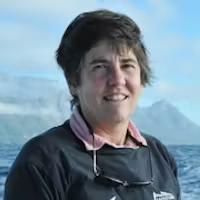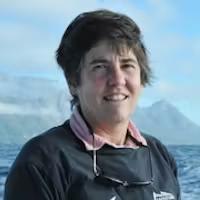Master ecosystem-based management of coastal oceans through Large Marine Ecosystems approach. Learn assessment tools and sustainable practices.
Master ecosystem-based management of coastal oceans through Large Marine Ecosystems approach. Learn assessment tools and sustainable practices.
This comprehensive course explores the management of Large Marine Ecosystems (LMEs), which produce $12.6 trillion in ecosystem goods and services annually. Students learn ecosystem-based management principles, focusing on integrated assessment and management across political boundaries and economic sectors. The course covers the five-module approach to LME assessment, transboundary diagnostic analysis, and strategic action planning. Developed with support from global organizations like GEF, UNDP, and NOAA, it features case studies from successful LME projects worldwide.
4.8
(291 ratings)
16,265 already enrolled
Instructors:
English
What you'll learn
Master the Large Marine Ecosystem approach and five-module assessment system
Understand ecosystem-based management principles in marine contexts
Apply transboundary diagnostic analysis and strategic action planning
Evaluate socioeconomic aspects of marine ecosystem management
Analyze environmental and fisheries management strategies
Implement sustainable development practices in coastal regions
Skills you'll gain
This course includes:
201 Minutes PreRecorded video
16 assignments
Access on Mobile, Tablet, Desktop
Batch access
Shareable certificate
Get a Completion Certificate
Share your certificate with prospective employers and your professional network on LinkedIn.
Created by
Provided by

Top companies offer this course to their employees
Top companies provide this course to enhance their employees' skills, ensuring they excel in handling complex projects and drive organizational success.





There are 6 modules in this course
The course provides comprehensive coverage of Large Marine Ecosystem assessment and management through six detailed modules. Students learn about ecosystem-based management principles, natural science modules (productivity, fish and fisheries, pollution), human dimension modules (socioeconomics, governance), and practical tools for assessment and implementation. The curriculum includes real-world case studies and best practices from global LME projects.
What is the Large Marine Ecosystem Approach?
Module 1 · 4 Hours to complete
The Three Natural Science Modules
Module 2 · 5 Hours to complete
The Two Human Dimension Modules
Module 3 · 3 Hours to complete
Tools and Actions: the Transboundary Diagnostic Analysis and the Strategic Action Programme
Module 4 · 3 Hours to complete
Transboundary Marine Ecosystem-Based Management
Module 5 · 4 Hours to complete
Taking it Home: Examples of Best Practice
Module 6 · 4 Hours to complete
Fee Structure
Payment options
Financial Aid
Instructor
Researching Variability and Dynamics of Marine Ecosystems in the Face of Global Change
Colleen Moloney's research focuses on the variability and dynamics of marine food webs and ecosystems, particularly within the productive marine ecosystems of the Benguela region along the west and south coasts of southern Africa. She also engages with projects in the oligotrophic east coast area. Her work spans a broad range of taxa, from microbes to top predators, examining how these ecosystems respond to global change. Utilizing ecological models, Colleen aims to understand the complex interactions and feedbacks among physical, chemical, and biological processes across various time and spatial scales. Currently, her research emphasizes the "end-to-end" dynamics of eastern boundary upwelling ecosystems, integrating fieldwork and modeling studies with a particular focus on microbial dynamics
Testimonials
Testimonials and success stories are a testament to the quality of this program and its impact on your career and learning journey. Be the first to help others make an informed decision by sharing your review of the course.
Frequently asked questions
Below are some of the most commonly asked questions about this course. We aim to provide clear and concise answers to help you better understand the course content, structure, and any other relevant information. If you have any additional questions or if your question is not listed here, please don't hesitate to reach out to our support team for further assistance.



